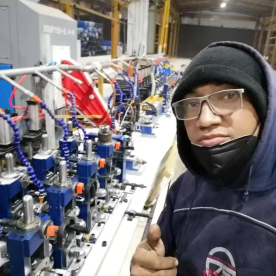[High-capacity Pipe mill production line]Revolutionizing Steel Manufacturing: An In-Depth Look at High-Capacity Pipe Mill Production Line Technologies and Their Impacts on Industry
News 2024-10-21
The steel industry has long been a pillar of global manufacturing, and among its essential components is the production of high-capacity pipes. As infrastructure projects multiply and industries demand more robust materials to support their operations, the evolution of manufacturing techniques has become paramount. At the forefront of this evolution is the high-capacity pipe mill production line, which utilizes advanced technology to enhance productivity, efficiency, and quality.
High-capacity pipe mill production lines are designed to manufacture pipes with larger diameters and thicker walls, meeting the needs of various sectors including oil and gas, water supply, and construction. These sophisticated systems combine several processes into a seamless operation, including forming, welding, and testing of pipes. The integration of cutting-edge technologies has dramatically improved the ability to produce high volumes of pipes while maintaining stringent quality standards.

Revolutionizing Steel Manufacturing: An In-Depth Look at High-Capacity Pipe Mill Production Line Technologies and Their Impacts on Industry
The welding technology used in these production lines has also seen significant advancements. Traditionally, pipe welding methods such as Electric Resistance Welding (ERW) were utilized; however, innovations have introduced more efficient and reliable processes like Laser Welding and High-Frequency Induction Welding. These newer techniques not only improve weld quality but also allow for the manufacturing of pipes with more intricate designs and higher tolerance levels. This is particularly important in sectors where safety and reliability are of utmost concern.
Moreover, high-capacity pipe mill production lines are equipped with state-of-the-art testing and quality assurance systems. These systems include Non-Destructive Testing (NDT), which allows manufacturers to detect potential flaws in pipes without compromising their integrity. This ensures that only pipes that meet rigorous quality standards are delivered to customers, reducing the likelihood of failures in the field that could lead to catastrophic outcomes.
The sustainability of manufacturing processes is another critical consideration in today’s industrial landscape. High-capacity pipe mill production lines are increasingly designed with energy efficiency in mind. Incorporating technologies that reduce energy consumption and waste generation is not only beneficial for the environment but also improves the bottom line for manufacturers. Advanced recycling systems can also capture and reuse scrap materials generated during production, further promoting sustainable practices.

Revolutionizing Steel Manufacturing: An In-Depth Look at High-Capacity Pipe Mill Production Line Technologies and Their Impacts on Industry

Revolutionizing Steel Manufacturing: An In-Depth Look at High-Capacity Pipe Mill Production Line Technologies and Their Impacts on Industry
In conclusion, the high-capacity pipe mill production line represents the future of steel manufacturing, combining efficiency, quality, and sustainability. As industries across the globe continue to evolve, the importance of these advanced production systems cannot be overstated. By leveraging innovative technologies, manufacturers are not only meeting current demands but are also poised to adapt to the challenges of tomorrow’s marketplace. The result is a robust steel industry powered by high-performance pipe manufacturing that supports critical infrastructure and industrial growth around the world.
